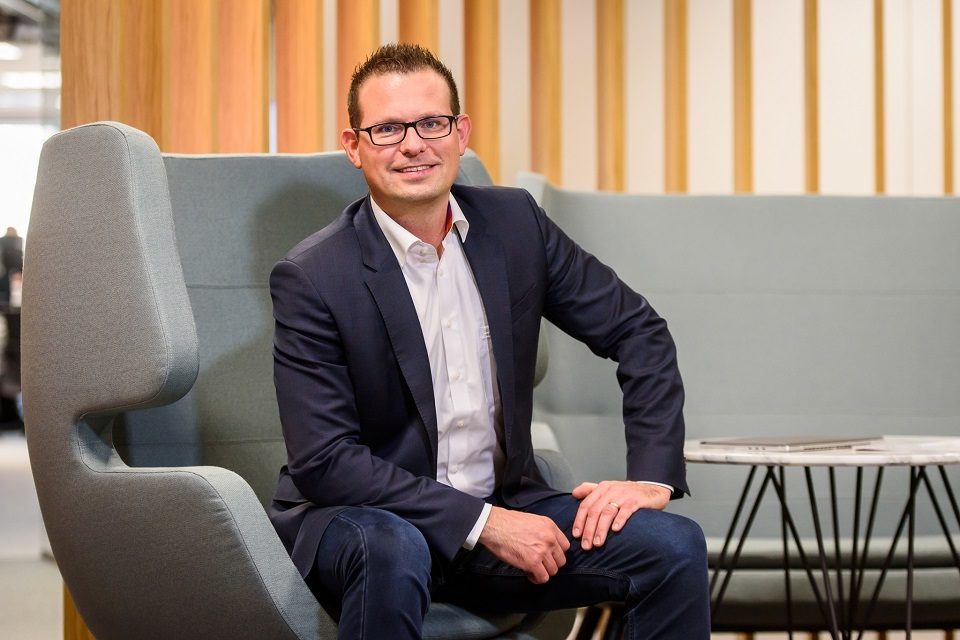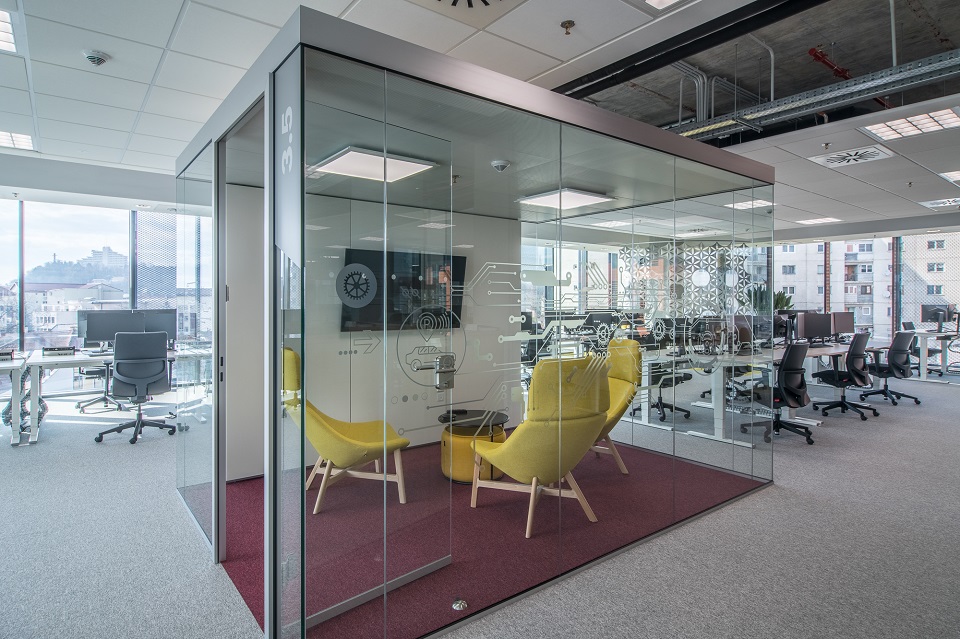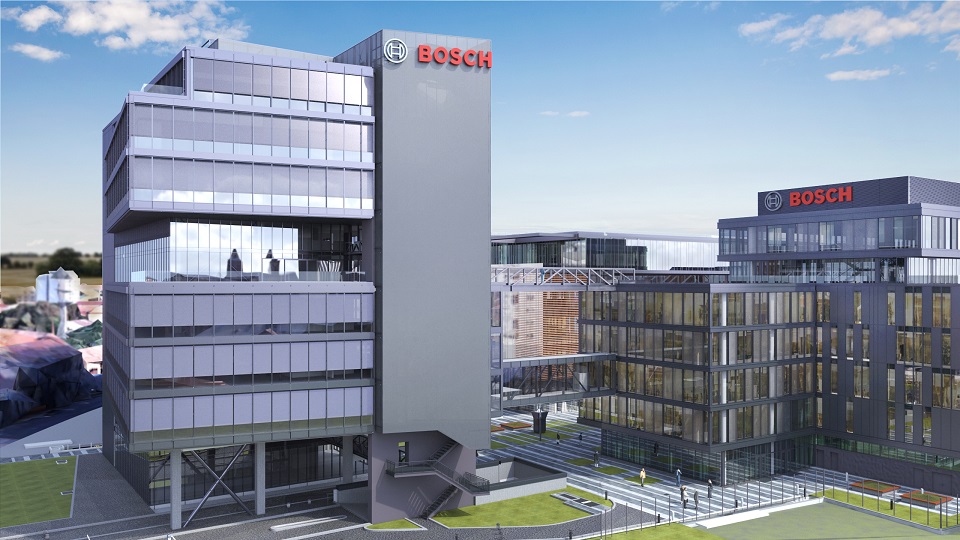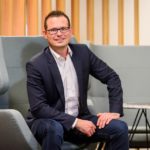INTERVIEW Tobias Matter, Bosch Engineering Center Cluj: “Connectivity in all areas will soon become mainstream”

“AIoT is a game changer for Bosch. It stands for the combination of AI (Artificial Intelligence) and the IoT (Internet of Things), and it means that all our products will be connected. By 2025, every Bosch product will either be equipped with AI or manufactured with its help. Our ultimate goal is that end users benefit from both technologies,” Tobias Matter, Head of Bosch Engineering Center Cluj told The Diplomat-Bucharest.
“Increasing digitalization, new mobility concepts, and trends such as personalization, connectivity, electrification, and automation create the potential for innovations like the software-defined vehicle (SDV). Today this concept is still in the development phase, but I believe that it will become mainstream in the coming years.”
Tobias Matter is the Head of Bosch Engineering Center Cluj since October 2021. The Engineering Center is an integral part of Bosch Group in Romania and contributes to the international Bosch engineering network to developing excellent products, services and innovative AIoT solutions for automated, connected, and electric mobility.

How would you describe the evolution of the Bosch Engineering Center Cluj during the last couple of years?
Ever since it was founded in 2013, Bosch Engineering Center has played a pivotal role in the significant transformation of the mobility sector. With vast expertise in software, hardware, mechanical and reliability engineering, but also in sales planning, the Center contributes to the development of first-rate products, services and innovative AIoT solutions for automated driving, connected and electric mobility. Due to the close collaboration with other Bosch engineering centers and with one of our main facilities in Romania, Bosch plant in Cluj, the center offers exclusive solutions to its clients from around the world.
Along the nine years of its existence, the center has steadily increased its development activities –
we have witnessed a large-scale competence build-up along with an impressive organizational growth. Strategically speaking, the first years were about finding our place within Bosch’s international engineering network – what kind of competences we have here on the local market, and what are the requirements of this region. Based on this background, we calibrated the profile of the Engineering Center Cluj, and all these processes helped us build trust both at the local market level, and within the Bosch Group. Thanks to this alignment throughout local and international units, today we are a mature center with full responsibility for various global projects, having over 1,200 associates working on the future of mobility.
As a result of our hardware, mechanical and reliability capabilities we provide an end-to-end approach to product development, which results in added value to the Bosch engineering network. Based on this, we can take over further responsibilities in the future. What differentiates Engineering Center Cluj from other businesses on the local market is the fact that we, at Bosch, have our own products on which we are working. A few of our focus areas are the combustion engine, fuel cells, battery charging services, steer-by-wire, assisted and automated driving for cars and trains.
How would you describe the current expansion process of the engineering center in Bucharest?
Through the Smart Work initiative, Bosch has implemented a hybrid collaboration model globally, systematically modelling the interaction between remote work and work at the office. The new hybrid way of working combines the benefits of working from home yielding efficiency and agility with the benefits of working at the office, where diversity serves our innovation and collaboration needs. This new way of work has been successfully implemented within the Engineering Center Cluj in 2021.
Implementing these flexible working conditions facilitated the launch of a pilot project to expand development activities in Bucharest, with the possibility of working at Bosch headquarters for those who want to come to the office. This pilot initiative includes software and hardware development activities for solutions and services for electric power steering systems, classical powertrain systems, but also for electric and connected cars and data management.
Bucharest is the first step in the new way of working for our Engineering Center. We would like to attract people from different regions of Romania to collaborate with us, but without the requirement to move to Cluj. As a first step, we would like to offer the engineers from the Bucharest area an opportunity to work on state-of-the art mobility projects with us, while remaining close to their families and friends. However, we would also like to offer our present and future colleagues the possibility of benefitting from face-to-face interactions with other team members, therefore we included the option of working for a few days in our existing office building in Bucharest. At Bosch, we believe in people and in the power of collaboration and problem solving, being in a virtual setting or in person. We encourage our people to connect with others whether in the form of actual or virtual meetings, collaborating sometimes physically such as in team building or outdoor and sport activities.
Currently, Bosch is one of the most desired employers in the Cluj area for engineering candidates, and in the future, we would like to be among the most attractive employers for engineers in Bucharest too.

What are your challenges in terms of recruitment and retaining/ attracting talents?
The major challenge for recruitment is finding the right people. We are responsible for our products and the Bosch quality standards are very high, therefore we need the right people to fulfil the highly challenging projects. In this regard, we are lucky to have state-of-the-art development projects in the mobility area, so I would say that the variety and the complexity of our technical projects are of high interest to engineers. And as we are still growing, both in the number of associates and of projects that we are accountable for, in 2022 we have over 400 open positions in Romania in the field of software and hardware engineering.
Coming back to the complexity of projects, we constantly improve the interaction between the vehicle’s surround sensors and brake and steering system, enabling automatic manoeuvres to be conducted even faster and more precisely. Thanks to the consistent technical advancement of its driver assistance systems (ADAS), Bosch creates the technical basis for the automated driving of the future. At Bosch Engineering Center Cluj, we contribute to the development of electronic control and communication units, data pipelines, cloud platforms and data science and AI solutions for various use cases within the mobility and other sectors.
On the other hand, in terms of retention, the major challenge is to keep our current 1,200 employees happy. For us it is very important to ensure a strong feeling of connection to our company. However, from my perspective, here we have a unique strength: our company culture is based on unique values. Of course, they are not for everyone, but the ones who enjoy them, will stay with us. For them, there are a lot of opportunities for growth. Within Bosch, we have different business units and functions, from household appliances, to automotive, up to industry technologies. Internal mobility for our associates is a highly recommended path in Bosch. One can choose to be an expert or a leader, to switch functional areas, locations, or countries. There are many ways in which one can define his/her career. Only if I look at the mobility area, here we have the assisted and automated driving projects, the electrification projects, and so on, and there are several fields of activity: from software and hardware to mechanics and reliability. Thus, if you like our culture, you will find your way with us.
What is your company’s strategy on becoming the global AioT leader?
AIoT is a game changer for Bosch. It stands for the combination of AI (Artificial Intelligence) and the IoT (Internet of Things), and it means that all our products will be connected. By 2025, every Bosch product will either be equipped with AI or manufactured with its help. Our ultimate goal is that end users benefit from both technologies. Think of it as a continuous improvement loop. Connected products transmit data, which is then processed with the help of AI algorithms. Optimizations are identified and integrated into the products in the form of software updates, and these cycles continue. In effect, this allows customers to be an integral part of the development process, with solutions tailored precisely to their needs.
How is Bosch accelerating the transition to the mobility of the future?
The future of mobility is automated, electric, and connected – this is Bosch’s vision. Bosch is an innovation leader in automated driving. With its driver assistance systems and the requisite sensor technology, it laid the foundation for all automation levels at an early stage. Bosch is taking a two-pronged approach. On the one hand, with the aim of making driving safer and more relaxed, it is developing solutions for private vehicles with a focus on driver assistance and on – partially and conditionally – automated systems (SAE Levels 1 to 3). On the other hand, the team is also working on solutions for higher levels of automation, with a focus on fleet vehicles and new operating models. For example, Bosch has already developed automated valet parking, the first production-ready driving function that does not require a driver.
Another path is electrified mobility. Battery-electric vehicles (BEV) are getting more popular. They operate with little noise, offer high torque from a standing start for a dynamic driving experience, and help improve air quality thanks to their zero local emissions. Bosch innovation potential in electric driving is unmatched, from e-bikes to construction machinery.
Fuel cells have tremendous potential to define the future of mobility: their performance is particularly impressive over long distances. Using hydrogen generated from renewable sources also makes transportation carbon neutral. This is a good enough reason for Bosch to make gasoline powertrains as efficient and resource-saving as possible. Hybrid systems combine the advantages of efficient internal-combustion engines and electric drive systems with zero local emissions. This combination enables reduced CO2 driving over short distances while increasing efficiency.
The path of connected mobility is seamlessly connecting users, vehicles, and services over the internet. This way drivers enjoy a fascinating experience and have more fun behind the wheel. That is why Bosch connects the systems and services inside and outside vehicles, transforming them into intelligent mobility solutions. We connect the vehicle’s components and subsystems to form complete systems to manage energy, safety, security, and information. Bosch connects the vehicles to the Internet and to the infrastructure. Our innovations in connected services bring together vehicle technology, internet connectivity and wide-ranging service experience that includes vehicle-generated data. A step further, Bosch links together different modes of transport, infrastructure, and energy suppliers, and this results in a variety of mobility services on a single platform.
What are the latest technological innovations that will become mainstream in the next years?
Connectivity in all areas of our lives is something that is still an innovation today, but it will soon become mainstream. But let’s remain in the mobility field. Increasing digitalization, new mobility concepts, and trends such as personalization, connectivity, electrification, and automation create the potential for innovations like the software-defined vehicle (SDV). Today this concept is still in the development phase, but I believe that it will become mainstream in the coming years.
The software-defined vehicle is a term used to describe the gradual transition from hardware-driven development to software-defined development. New connectivity, automation, and personalization features will be increasingly implemented with software in the future. While in the past the customer’s experience of a car was primarily defined by hardware, software is now taking on a much more important role. The trend of software massively shaping the customer experience area introduces new business models and types of collaboration.














